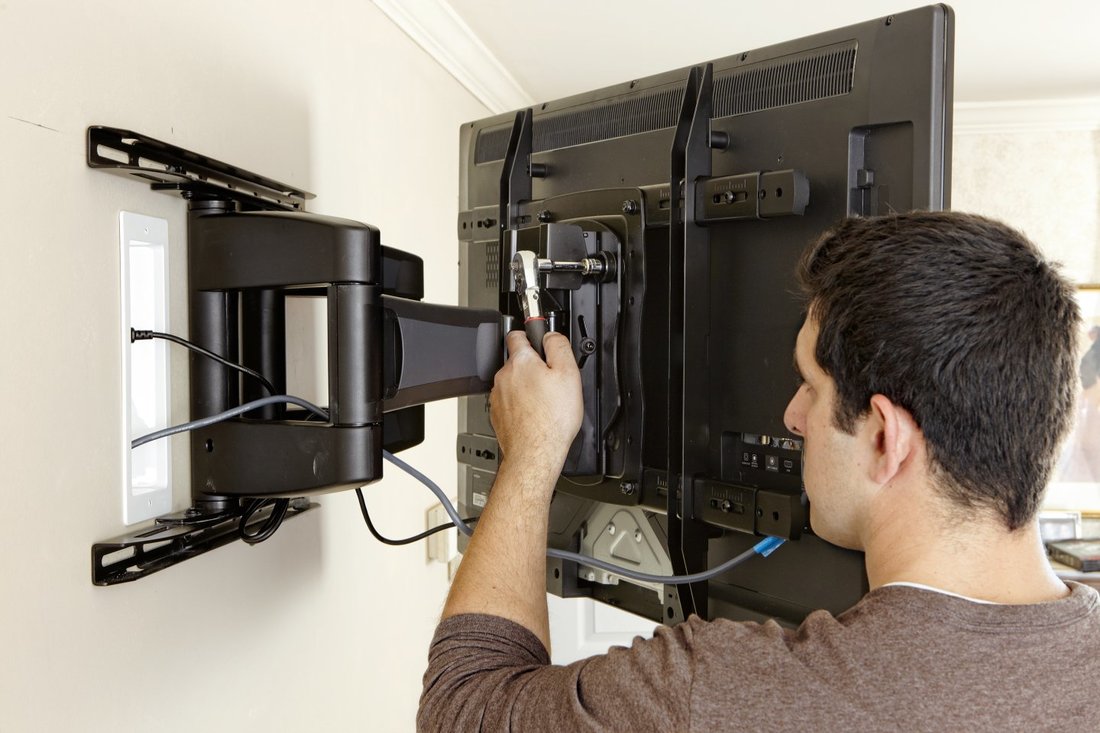|
Answers to Builders' Top Questions Starting a new partnership with a home technology professional can inspire some anxiety in even the most experienced homebuilders. Technology evolves at a rapid pace, and keeping up-to-date on the latest trends and options can be a full-time job.
Fortunately for homebuilders, an experienced home tech pro can resolve these concerns and ensure your next home technology project runs smoothly Q. I see working with you as risky. Why shouldn't the client just add technology after I am done working with them? A. From the builder's standpoint, this may seem like the easiest thing to do. However, bringing in a home technology professional can positively impact the design and make your project more valuable to your client. It's easy to think you just need to plan for a few flat-screen TVs-just run the coax and put an outlet on the wall and you're done. But a home tech pro who comes in early in the process can work with the client to see what they want to achieve in their home, and they may arrive at a solution that gives the client much more control over their environment. Rather than having five or six controls in one room, a home tech pro can integrate lighting, shading, and a hidden sound system along with entertainment controls all on one control device. Q. Can't you bring the price down? After all, it's just a few speakers, a receiver and some TVs. A. Designing home electronic systems properly requires planning, knowledge and expertise. For example, electronic components generate heat, so selecting where to locate the equipment can help make sure it stays cool, adding to its longevity. Wiring distances, balancing equipment aesthetics with optimal sound design, and budget concerns are just a few of the things the home technology professional has to take into consideration. To ensure the homeowner is getting a system that will offer enjoyment and convenience for years to come, it pays to invest in the expertise of a qualified professional. Q. Why do you want to be involved so early in the process? I prefer to hold onto the reins myself. A. Working with a home tech pro from the beginning may seem like a cause for concern to builders, because they're not always accustomed to working with the subcontractors that early. However, this actually gives the general contractor more control. It keeps the homeowner from bringing in someone who doesn't have a relationship with the builder and doesn't know their processes. I always try to put myself in the client's shoes so I can learn about how they want to live their life. The general contractor, having different processes and perspective, probably won't ask the questions I need to ask in order to deliver what the client needs. The builder and the home tech pro should meet one-on-one, without the homeowner, early in the process to learn each other's preferences and processes and build the foundation for a relationship. Depending on the project, a home tech pro may be involved with not only the A/V but also lighting, shades, gate controls, heated driveway, HVAC control, and more. The greater the scope of the project, the more crucial it is to involve a home technology professional early in the process. Q. I don't know what I don't know. How can I trust that you know what you're doing? A. With as fast as technology changes, it can be difficult even for a pro to keep up-to-date. It may be beneficial for the general contractor to get a top-level understanding of the technology in order to feel more comfortable speaking the language with the home tech pro and the client. One place to start is by finding a CEDIA Outreach Instructor in your area who offers courses that help give builders, architects and designers a general working knowledge of home technology. Additionally, any good home tech professional will have a process. It's their responsibility to educate the general contractor on that process and keep them involved to the degree they choose. Q. If you don't deliver, my bottom line will take a hit. How do I know you're not putting me at risk? A. Partnering with a reputable professional with established processes and a secure business model is key to minimizing risk. It's important for the general contractor to know the integrator's reputation, their experience, and their longevity in business. It's also helpful to know the product lines they sell, because if the client experiences an issue with the product, they always have the option to go back to the manufacturer for resolution. Q. What if something goes wrong after the project is finished? What if the client doesn't like it? A. A good integrator will set manageable expectations from the beginning in order to ensure client satisfaction. Let's take lighting control as an example. As a home technology professional, I explain to my clients that the lighting control is not going to work exactly as they want it to at move-in simply because they haven't lived with it yet. They'll discover over time that they want changes to the programming based on their usage. That's why they hire a pro. By setting manageable expectations at the beginning, we are able to refer back to that point to manage client satisfaction. Q. How do I make money on this? A. If you can present the value to your client, it is easier to make money on the process. You're doing that by showing that there's a lot more to this process than buying a flat-screen TV at the big-box store and hanging it on the wall. It is a process of questioning, teaching, learning and applying the tools of our experience and knowledge to each and every project we do. © 2015 CEDIA Comments are closed.
|
Categories
All
tv INSTALLATIONGet your family room ready for game day with a secure and professionally mounted flat screen TV by the experts at Innovative Living Group
CALL TODAY 406.404.1221 |





 RSS Feed
RSS Feed
